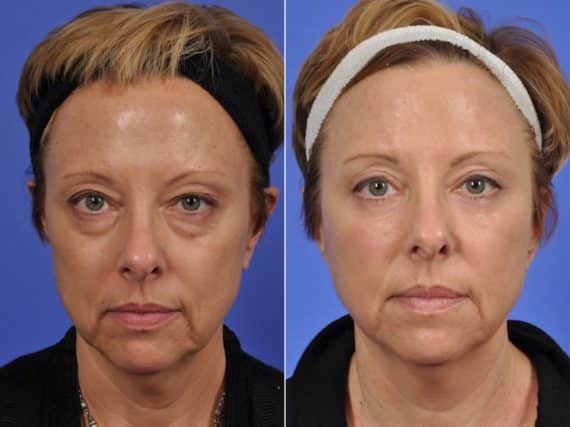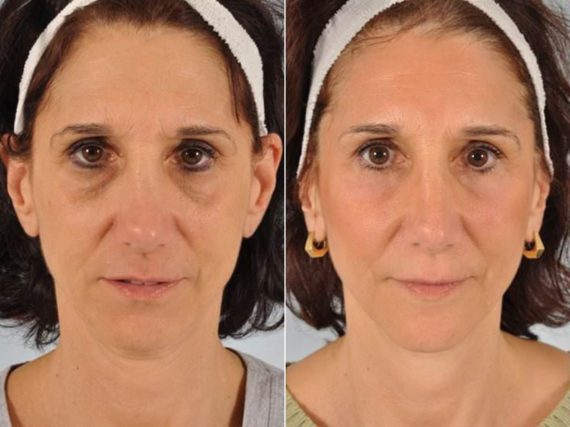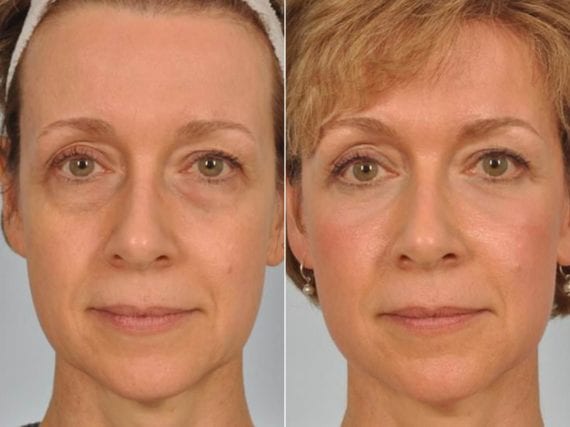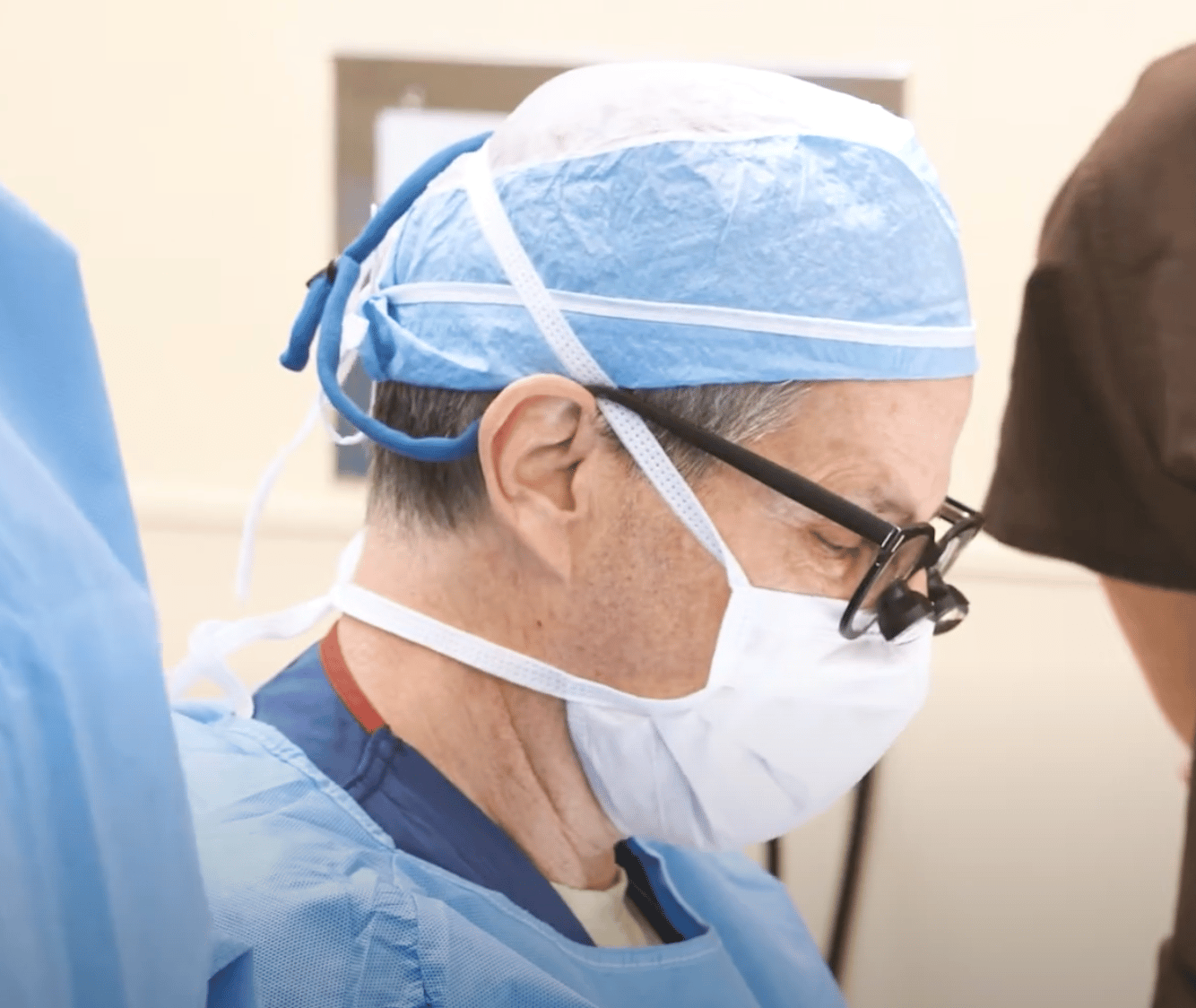What is Laser Skin Resurfacing?
Laser skin resurfacing is a cosmetic procedure that uses lasers to reduce wrinkles and scars, even out discoloration, ease signs of sun exposure, and tighten the skin — giving patients a rejuvenated, more youthful appearance.
What Issues Can Laser Resurfacing Address?
You may be an ideal candidate for laser skin resurfacing if you have:
-
- Sun damage
- Acne scars
- Fine lines, wrinkles, or other signs of aging
- Acne
- Issues due to hormones such as acne, hyperpigmentation, and a decrease in collagen and elastin production
Dr. Wulc will inform prospective patients of any limitations in specific cases for laser skin resurfacing. Limitations such as keloid-prone skin, sensitivity to anesthesia, or certain active skin conditions may prevent individuals from getting a standard laser skin resurfacing procedure.
Dr. Wulc takes each patient seriously and treats them on an individual basis, so he may make modifications to the treatment plan or recommend other types of skin rejuvenation intervention.
Non-Ablative Vs. Ablative Laser Technology
A non-ablative laser skin resurfacing treatment is performed with a less invasive laser. It results in less downtime because the skin is not ablated — or removed.
Often known as a fractionated laser, thousands of microscopic areas are targeted during a single session. Other columns of skin are left unharmed, leading to a controlled injury pattern that is less visible than in ablative lasers.
This non-aggressive laser treatment option will improve the look of uneven skin tone, mild sun damage, acne scars, and fine lines and wrinkles.
Ablative laser skin resurfacing creates more damage to the upper layers of skin, which are removed during the procedure. Although ablative lasers require more recovery time, ablative laser skin resurfacing will result in a more dramatic improvement. Ablative lasers are typically reserved for correcting major skin issues like deep wrinkles around the mouth, pitted scars, and very uneven pigment and texture.
Non-ablative treatments are often performed in a private room at the W Cosmetic Surgery™ clinic in Philadelphia, while the ablative treatments take place in an operating suite in the facility.
What Does Recovery Look Like?
Following laser skin resurfacing, Dr. Wulc’s staff will place a cool compress on the treatment area and smooth an emollient product over the skin’s surface. This helps to protect the skin and begins the healing process. There may be redness and swelling present in the skin for several days or weeks.
Aftercare is important following any type of laser treatment, but the care required differs depending on the specific treatment performed. Ablative lasers remove the surface layers of skin, leaving the face with injuries that require proper care for optimal healing. While each patient will be provided with specific post-care instructions, the steps generally consist of compresses, gentle cleansing, and the application of recommended ointments or creams. The office may also recommend special types of skincare products or routines to use during a patient’s daily regimen.
Your Post-Procedure Regimen
Following an ablative procedure, patients will be scheduled for follow-up appointments to ensure proper healing. After the new base layer of skin cells has formed, a staff member will instruct patients to use a lighter cream on the skin. The formula is hypoallergenic and breathable, with pigments that restore the patient’s skin shade to their face. There will likely be some redness and irritation for a few to several days following non-ablative laser treatment, and up to a few weeks following an ablative resurfacing. Six weeks after a patient undergoes laser skin resurfacing, they can undergo a light-based treatment if necessary to curb residual redness.
Medications After Laser Skin Resurfacing
Patients will be prescribed antibiotics and antiviral medications, depending on the type of resurfacing treatment. Prescription pain medication is not necessary and patients are recommended to take Tylenol® to control any discomfort. Patients will be encouraged to apply sunscreen to their treated skin daily and to avoid sun exposure to prevent hyperpigmentation.
Schedule a Consultation for Laser Skin Resurfacing
If you’re interested in addressing skin concerns that make you self-conscious and look aged, reach out to W Cosmetic Surgery today to schedule a consultation in our Philadelphia office.
Dr. Wulc will speak with you to determine the plan of action that’s best for your individual needs, skin concerns, or facial structure.

Discover your possibilities.
Schedule a consultation
Saturday - Sunday Closed






